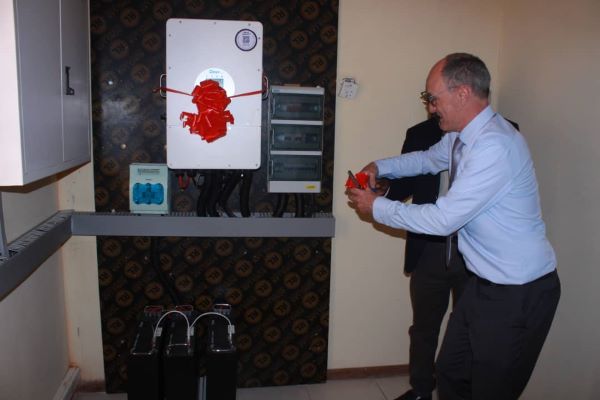Like many other countries in the Southern African region, Zambia experienced a drought during the 2023–2024 rainy season triggered by the El Niño weather condition.
By Alfonso Kasongo
The drought reduced hydroelectric power generation in the country, resulting in unprecedented load-shedding. This not only crippled economic sectors but also hampered service delivery, including the national HIV response.
According to the National AIDS Council (NAC), the shift to diesel power generators due to prolonged load-shedding cost the institution an average of US$1,000 monthly, equivalent to ZMW 31,000 in local currency, on power alternatives.
To avert these losses, Germany, through GIZ Development Cooperation, has donated a solar backup system worth ZMW 366,000, equivalent to about US$12,000. The solar system includes a 12KVA inverter, 25 solar panels, and three 5.12KW lithium batteries, generating about 15KW of power.
At the time of handover, the system was producing about 9KW, while the demand load stood at 7KW.
Speaking during the donation, NAC Director General Dr. Kebby Musokotwane said, “The donation is a stride towards sustainability through the use of green energy and serves as a testament to our enduring partnership.”
“The severe drought of the past crippled hydroelectric power generation, plunging the country into unprecedented load-shedding. These power interruptions negatively affected our productivity, leaving the institution with no better option than to rely on costly alternatives such as diesel generators,” Dr. Musokotwane added.
GIZ Country Director Axel Ulmer stated that the cooperation is built on trust, mutual support, and a joint commitment to fighting HIV, GBV, and early pregnancy in Zambia.
“We are here today for two things: to hand over a new solar system and to sign an agreement for the implementation of our joint programme— ‘Strengthening Girls’ Rights, Reproductive Health, and HIV Prevention for Young Women and Girls in Zambia.'”


